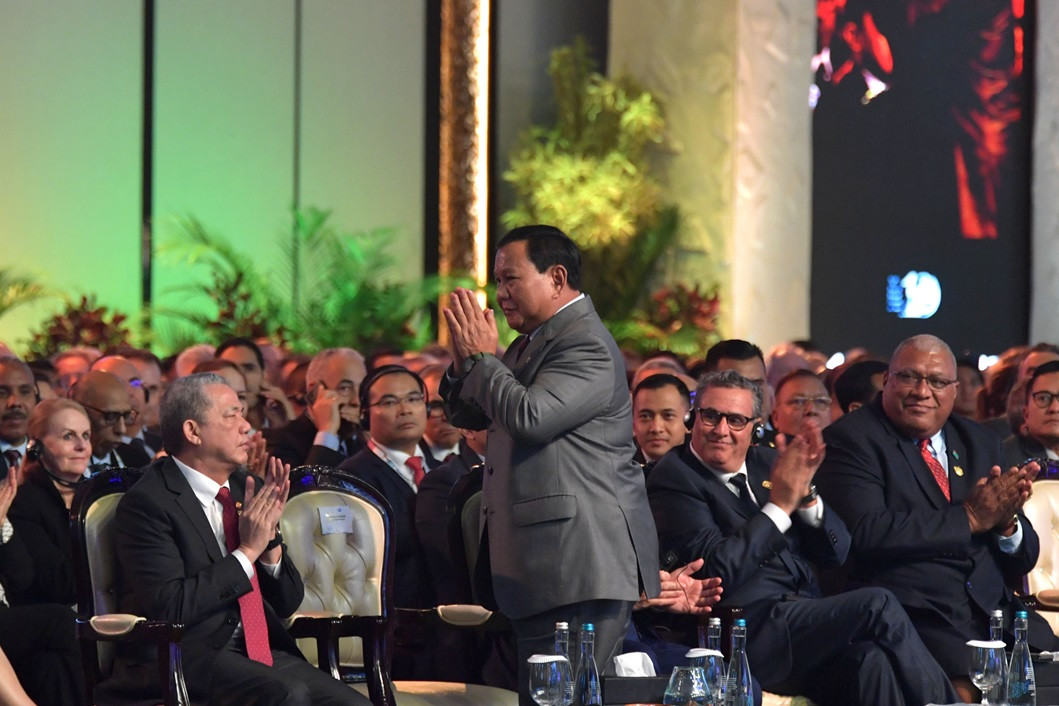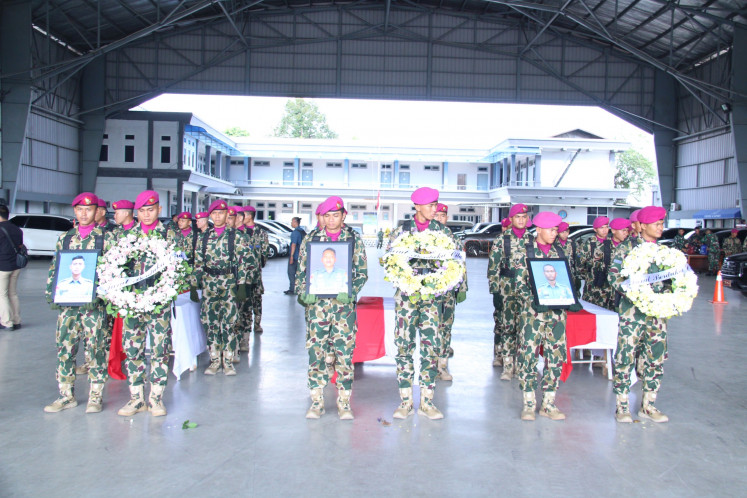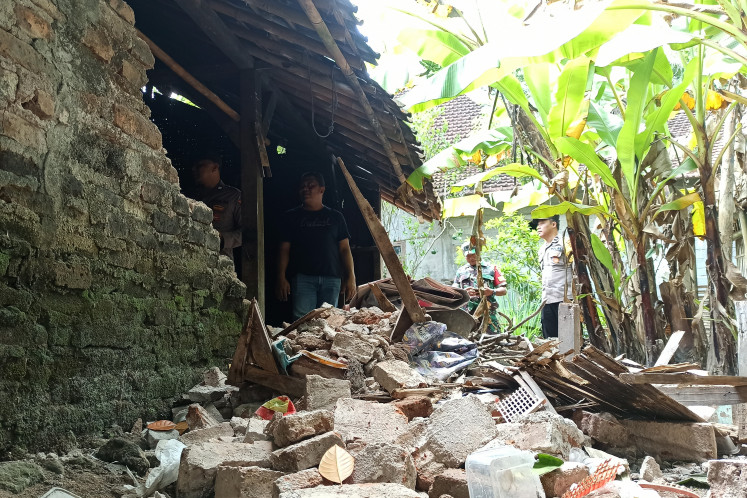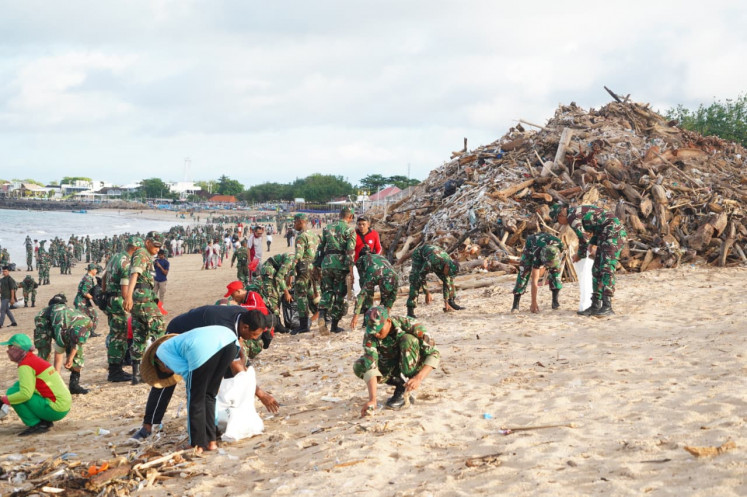Popular Reads
Top Results
Can't find what you're looking for?
View all search resultsPopular Reads
Top Results
Can't find what you're looking for?
View all search resultsPrabowo rebrands ‘free lunch’ program
The 72-year-old former army general announced the change on Wednesday in a segment with local broadcaster TVOne, one of the first sit-down interviews he has given to local press since his landslide election victory.
Change text size
Gift Premium Articles
to Anyone
P
resident-elect Prabowo Subianto is rebranding his “free lunch” program, a campaign promise that helped him secure victory in February’s election, by doubling down on addressing child malnourishment and tailoring solutions to the different “typologies and conditions” of each region.
The 72-year-old former army general announced the change on Wednesday in a segment with local broadcaster TVOne, one of the first sit-down interviews he has given to local press since his landslide election victory.
Prabowo said a better way to describe his landmark program was “free nutritious food for children”.
“‘Free lunch’ was easier [to remember] but, as it turns out, a lot of children go to school from early in the morning and are home by 12-1 p.m., so any [free] lunch was too late,” he said in the interview.
“What’s important is that the food must be nourishing and that we focus on providing it to our children.”
The Gerindra Party chair’s remarks are widely seen as a response to early criticisms of his ambitious project to feed 90 million students from preschool to senior high school.
From trials conducted in several schools across the country, one close aide of Prabowo observed that participating students would often be found bringing home their free lunch rather than consuming it at school.
Prabowo was still convinced, however, that the program would be a “growth driver” and help raise the earnings of farmers and the value of their harvests.
The populist program has sparked other concerns as well, ranging from conflation with the interests of industrial lobby groups or the sheer scale of the logistics required, to the burden on Indonesia’s state finances and economy.
Prabowo’s program, which had included free milk, could potentially cost upwards of Rp 450 trillion (US$28 billion).
He said his team had made the calculations to run such a program. “We are capable,” he asserted.
Read also: No such thing as free lunchNot milk?
However, the chair of the Indonesian Farmers Association (HKTI) also suggested that his team would be “flexible” about a plan to push for more milk consumption, saying that it would depend on the requirements of each region.
“Regarding milk, we will see. It will depend on the region. For instance, in Southwest Maluku there are a lot of water buffalo, so they have enough buffalo milk. Then there are places with a sizable goat population, so they’ll have access to goat's milk,” Prabowo told the broadcaster.
The defense minister also said there were other sources more suited to fulfilling protein and mineral content needs than milk, such as eggs and fish.
We’ll have to adapt our plans to the different typologies and conditions of each region. We can’t have a one-size-fits-all solution for all of Indonesia,” he said.
“We have to be flexible, as long as our children are able to get their nutrients.”
An estimated one in 12 Indonesian children under five are wasted while one in five are stunted, according to data compiled by the United Nations children’s fund, UNICEF.
Both are physical manifestations of child malnourishment and have severe consequences, threatening the health, lives and long-term development of infants and young children throughout the country.
The government has set ambitious targets for tackling all forms of malnutrition, such as reducing child stunting from 30.8 percent in 2018 to 14 percent in 2024 and child wasting from 10.2 percent to 7 percent in the same period, according to a 2017 national development road map.
It is part of a longer-term strategy to develop the nation’s human resources to achieve a “Golden Indonesia” generation by 2045. (tjs)











